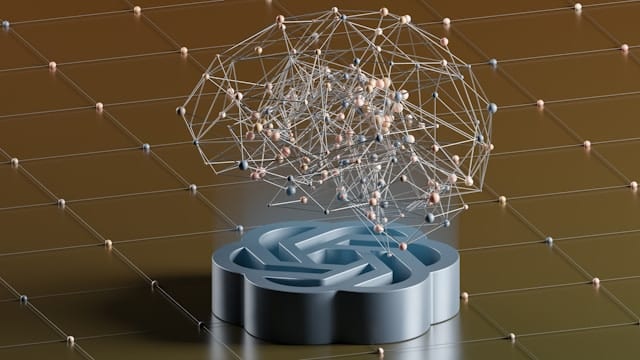Artificial Intelligence (AI) is making transformative strides in various sectors, and mental health diagnostics in the UK is no exception. This article delves into the ways AI is changing the landscape of mental healthcare, providing patients with more personalized treatments and healthcare providers with innovative tools to enhance patient care.
The Intersection of AI and Mental Health
In recent years, there has been a growing interest in leveraging artificial intelligence to address pressing mental health issues. AI systems, equipped with algorithms capable of machine learning and deep learning, can process health data at an unprecedented scale and speed. This capability allows for more accurate and efficient diagnostics.
A lire également : How Can UK Companies Utilize Blockchain for Secure Supply Chain Management?
Mental health conditions are often complex and multifaceted, requiring a nuanced understanding for effective treatment. Traditional diagnostic methods rely heavily on the subjective judgment of healthcare professionals, which can sometimes lead to inconsistencies. AI offers a more standardized approach, using data from various sources such as medical records, patient surveys, and even social media activity to predict and diagnose conditions.
Recent studies published on platforms like PubMed and Google Scholar, including articles with DOI and PMC references, provide ample evidence of AI’s efficacy in this field. According to a free article on PMC, AI-driven tools have shown promise in identifying symptoms of depression and anxiety more accurately than some traditional methods.
A découvrir également : What Are the Latest Innovations in UK Agricultural Robotics?
AI’s Role in Personalized Treatment
One of the standout benefits of AI in mental health diagnostics is its ability to offer personalized treatment plans. Each patient is unique, and what works for one individual may not work for another. AI algorithms analyze vast amounts of healthcare data to identify patterns and predict which treatments are likely to be most effective for each patient.
For instance, AI can support healthcare providers by recommending specific drugs or therapies based on a patient’s medical history, genetic makeup, and even lifestyle choices. This predictive analytics approach not only enhances patient outcomes but also reduces the trial-and-error period typically associated with mental health treatments.
In the UK, several initiatives are underway to integrate AI into the mental healthcare system. For example, the NHS has started to explore AI-driven platforms that offer support through digital means, providing patients with real-time feedback and coping strategies. This continuous care model helps in managing chronic conditions and preventing relapse, thereby improving overall health services.
Data-Driven Diagnostics
The power of AI lies in its ability to analyze and interpret vast amounts of data. In the context of mental health, data can be sourced from electronic health records (EHRs), wearable devices, and even social media interactions. AI systems use this data to identify early signs of mental health issues, enabling healthcare providers to intervene before conditions worsen.
For instance, a study cited in a PubMed Crossref article demonstrated that AI could predict episodes of bipolar disorder by analyzing patterns in a patient’s speech and activity levels. This early detection is crucial in managing mental health conditions effectively.
Moreover, AI’s ability to continuously learn and adapt means that its diagnostic capabilities will only improve over time. The feedback loop created by integrating AI in healthcare ensures that the system evolves with each new patient case, leading to more refined and accurate diagnostics.
Ethical Considerations and Challenges
While the benefits of AI in mental health diagnostics are numerous, there are also significant ethical considerations and challenges that must be addressed. Patient data privacy is a primary concern. The data used by AI systems are often sensitive and personal, raising questions about how this information is stored, shared, and used.
Moreover, the reliance on AI for healthcare introduces the risk of over-reliance on technology. While AI can enhance diagnostic accuracy, it should not replace human judgment. The role of healthcare professionals remains crucial in interpreting AI’s findings and making informed decisions about patient care.
Another challenge is ensuring that AI systems are free from biases. Since AI algorithms learn from existing data, they can perpetuate existing biases if the data is not representative of diverse populations. Ensuring that AI systems are trained on diverse and inclusive datasets is essential for equitable health services.
The Future of AI in Mental Health Diagnostics
The future of AI in mental health diagnostics in the UK looks promising. As AI technology continues to advance, we can expect even more sophisticated tools that not only diagnose but also predict mental health conditions with high accuracy. These advancements will likely lead to earlier interventions, better patient outcomes, and more efficient use of healthcare resources.
AI’s integration into mental health diagnostics also opens up possibilities for crossref collaborations between tech companies and healthcare institutions. Companies like Google are already investing in AI research aimed at improving healthcare outcomes. These collaborations could lead to the development of more robust and user-friendly diagnostic tools.
In conclusion, AI is revolutionizing mental health diagnostics in the UK by providing more accurate, efficient, and personalized care. While challenges remain, the potential benefits far outweigh the risks. As AI technology continues to evolve, its role in mental health diagnostics will become even more integral, offering hope for better management and treatment of mental health conditions.






